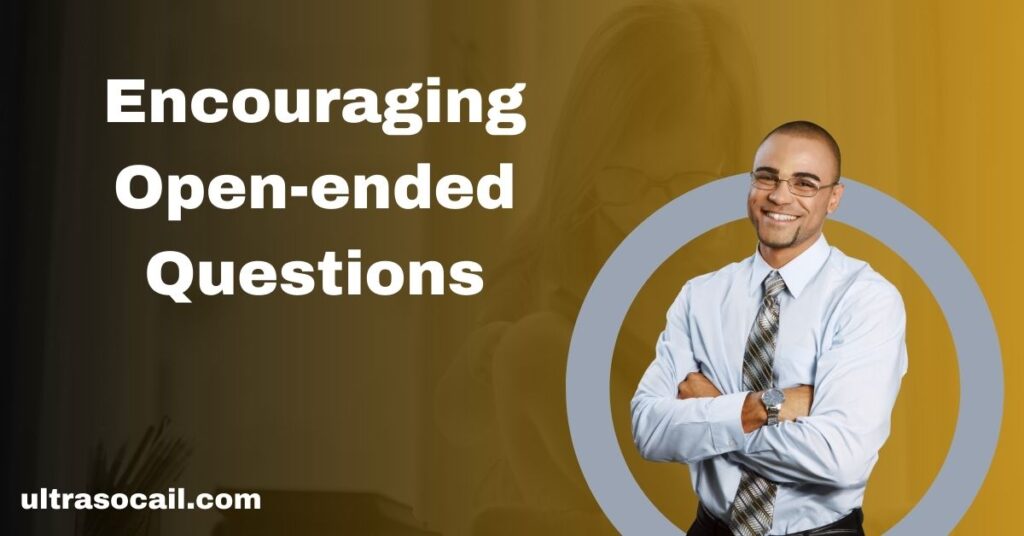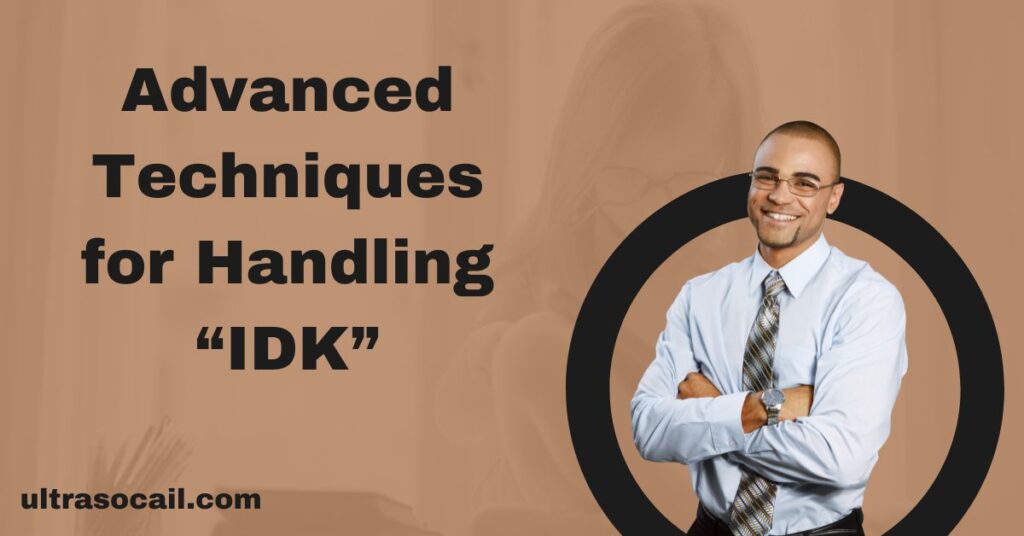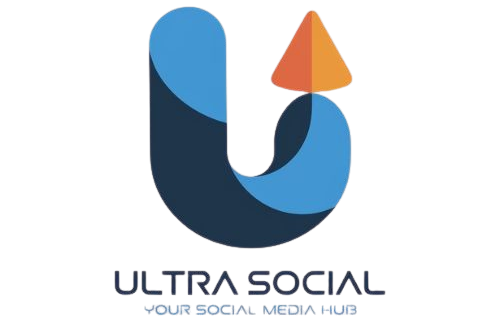When someone throws out the phrase “I Don’t Know(IDK),” it can feel like a sudden halt in conversation. But don’t worry! This moment of uncertainty doesn’t have to be a dead end.
Instead, consider it an invitation to explore deeper topics. Responding creatively can transform that initial awkwardness into a dynamic discussion that fosters understanding and sparks curiosity.
This collection is packed with over 230 imaginative replies to “I Don’t Know(IDK),” giving you the tools to keep the conversation flowing.
Whether you want to encourage critical thinking, share a light-hearted joke, or dive into a serious topic, these responses will help you navigate uncertainty with confidence.
Get ready to turn those “I Don’t Know(IDK)” moments into thought-provoking dialogues that leave a lasting impression.
Understanding “I Don’t Know”
When we say “I Don’t Know(IDK),” we embrace uncertainty. This simple phrase opens the door to deeper conversations. It shows that we are willing to admit our limitations.
Acknowledging “I Don’t Know(IDK)” can lead to new insights and discoveries. Instead of fearing the unknown, we can explore it together.
This mindset encourages curiosity and invites questions. When someone responds with “I don’t know,” it’s an opportunity to learn from one another.
Understanding “I Don’t Know(IDK)” is crucial in communication. It creates a safe space for sharing thoughts and feelings. It fosters empathy and active listening between people.
When we accept “I Don’t Know(IDK),” we build trust in our relationships. This phrase reminds us that it’s okay not to have all the answers. It helps us grow as individuals and as a community.
In essence, “I Don’t Know(IDK)” is not a dead end; it’s a starting point for exploration and understanding.
Read More: 230+ Good Responses To “You’re The Best”
230+ Replies To “I Don’t Know (IDK)”
Navigating conversations can be tricky, especially when someone responds with “I Don’t Know(IDK).” This article offers over 230 creative and engaging replies to help you respond effectively and keep the dialogue flowing.
Motivational Responses
- “Not knowing is just the first step in discovering something new. Embrace the journey!”
- “Every ‘I Don’t Know(IDK)’ is a chance to ask better questions. Seek the answers!”
- “Uncertainty can be a springboard to innovation. Dive into the unknown!”
- “When you say ‘I don’t know,’ remember: every expert was once a beginner.”
- “Use ‘I don’t know’ as fuel for curiosity. Let it ignite your passion for learning!”
- “Don’t fear the unknown; it’s where the magic of discovery begins.”
- “The path to knowledge is paved with questions. Keep asking!”
- “Your uncertainty today can lead to wisdom tomorrow. Keep exploring!”
- “‘I don’t know’ is a powerful statement; it opens the door to learning.”
- “In the face of ‘I don’t know,’ dare to imagine what could be.”
Philosophical Insights
- “In the grand tapestry of life, ‘I don’t know’ is a thread that invites exploration.”
- “Every moment of uncertainty is a reminder that we are all students in the school of life.”
- “To say ‘I don’t know’ is to acknowledge the vastness of knowledge yet to be gained.”
- “Life thrives in the grey areas of ‘I Don’t Know(IDK)’ and ‘what if.’ Embrace the ambiguity.”
- “Understanding starts with the admission that we don’t have all the answers.”
- “The question is more valuable than the answer; let ‘I don’t know’ spark inquiry.”
- “Every ‘I don’t know’ is an opportunity to engage in the dance of discovery.”
- “Embrace uncertainty; it often leads to the most profound truths.”
- “‘I don’t know’ is the beginning of wisdom; it paves the way for deeper understanding.”
- “Acknowledging ‘I don’t know’ creates space for genuine dialogue and connection.”
Light-hearted Responses
- “If I had a dollar for every ‘I don’t know,’ I’d be rich enough to find out!”
- “Don’t worry, even Google doesn’t know everything!”
- “‘I don’t know’ is just my brain buffering. Please wait”
- “Guess what? ‘I don’t know’ just means we’re on the same team!”
- “If ‘I don’t know’ had a mascot, it would be a confusing emoji!”
- “Why did the chicken cross the road? I don’t know, but I bet it was for a good reason!”
- “My crystal ball is in the shop, so ‘I don’t know’ is my go-to response!”
- “Let’s turn ‘I don’t know’ into ‘Let’s find out together!’”
- “When in doubt, let’s just blame the Wi-Fi!”
- “I’d say ‘I don’t know’ is my spirit animal! It keeps things interesting!”
Encouraging Dialogue
- “I don’t know either; let’s brainstorm some possibilities!”
- “How about we explore this together? ‘I don’t know’ opens a path to collaboration.”
- “Let’s turn ‘I don’t know’ into a question worth asking!”
- “Can we dig deeper? ‘I Don’t Know(IDK)’ is just the beginning of our conversation.”
- “Instead of ‘I don’t know,’ let’s ask: ‘What can we discover?’”
- “I don’t know if it is our invitation to explore new ideas together.”
- “Let’s turn ‘I don’t know’ into an adventure of discovery!”
- “How can we transform our uncertainties into a journey of exploration?”
- “Together, we can turn ‘I don’t know’ into valuable insights!”
- “Your ‘I don’t know’ might be the start of a fantastic discovery!”
Handling Uncertainty
- “When faced with uncertainty, embrace the ‘I don’t know’ and take a step back.”
- “In the realm of the unknown, ‘I don’t know’ can be a calming mantra.”
- “Uncertainty can be unsettling, but it’s also a fertile ground for growth.”
- “Every ‘I don’t know’ moment teaches us resilience in the face of uncertainty.”
- “It’s okay to not have the answers; that’s where learning begins.”
- “Navigating ‘I don’t know’ teaches us the art of patience and reflection.”
- “How we handle ‘I don’t know’ can shape our emotional resilience.”
- “Turn uncertainty into a learning opportunity; embrace the mystery!”
- “Let ‘I don’t know’ be your invitation to pause and reflect.”
- “In the face of uncertainty, let’s practice curiosity instead of fear.”
Empathy in Communication
- “When someone says ‘I don’t know,’ listen. It’s an invitation to explore together.”
- “Empathy starts with understanding ‘I don’t know’ as a part of our human experience.”
- “Validating ‘I don’t know’ fosters a safe space for open communication.”
- “Let’s acknowledge ‘I don’t know’ as a stepping stone to deeper connections.”
- “Your ‘I don’t know’ resonates; it reminds us that we’re all in this together.”
- “Use ‘I don’t know’ to build bridges, not walls. Reach out and connect.”
- “Empathetic responses to ‘I don’t know’ can turn uncertainty into shared exploration.”
- “In communication, ‘I don’t know’ can create bonds of understanding and support.”
- “Let’s navigate ‘I don’t know’ with kindness and curiosity.”
- “A supportive response to ‘I don’t know’ encourages growth and connection.”
Problem-solving Strategies
- “‘I don’t know’ often leads to creative problem-solving; let’s think outside the box!”
- “In the world of uncertainties, every ‘I don’t know’ is a chance for collaboration.”
- “To turn ‘I don’t know’ into solutions, let’s brainstorm together!”
- “When faced with ‘I don’t know,’ gather ideas and perspectives for clarity.”
- “Consider ‘I don’t know’ a puzzle waiting to be solved. Let’s piece it together!”
- “Every uncertainty presents a learning opportunity; let’s approach it collaboratively.”
- “Problem-solving begins with recognizing ‘I don’t know’ as a chance to innovate.”
- “Explore options when faced with ‘I don’t know’; solutions often emerge in discussions.”
- “Turning ‘I don’t know’ into actionable steps is where effective communication shines.”
- “Embrace ‘I don’t know’ as the first step toward collaborative problem-solving.”
Encouraging Curiosity
- “‘I don’t know’ should spark curiosity, urging us to seek out new knowledge.”
- “Curiosity thrives in the face of ‘I don’t know’; let’s explore together!”
- “Ask questions when you hear ‘I don’t know’; it’s a doorway to discovery.”
- “Let’s transform ‘I don’t know’ into a catalyst for curiosity-driven discussions.”
- “Every ‘I don’t know’ is an invitation to deepen our understanding.”
- “Curiosity and ‘I don’t know’ go hand in hand; let’s embrace the unknown!”
- “Use ‘I don’t know’ as a stepping stone to ask deeper, thought-provoking questions.”
- “Engaging with ‘I don’t know’ can lead to exciting avenues of inquiry.”
- “In the world of learning, ‘I don’t know’ fuels the fire of curiosity.”
- “Let curiosity guide us through the maze of ‘I don’t know.’”
Seeking Clarification
- “When someone says ‘I don’t know,’ ask open-ended questions to guide the discussion.”
- “Seek clarification when you hear ‘I don’t know’; it’s a chance for deeper insight.”
- “Turning ‘I don’t know’ into questions can illuminate paths we hadn’t considered.”
- “Encourage clarity by asking: ‘What do you need to find out more?’”
- “In conversations, seek clarity to turn ‘I don’t know’ into actionable steps.”
- “When faced with ‘I don’t know,’ let’s explore what information is missing.”
- “Open-ended questions can transform ‘I don’t know’ into opportunities for exploration.”
- “Let’s clarify what we don’t know; it’s a chance to learn together.”
- “Each ‘I don’t know’ is a signal to dig deeper and seek understanding.”
- “Turning uncertainty into clarity starts with asking the right questions.”
Critical Thinking Responses
- “When faced with ‘I don’t know,’ take a moment to analyze the situation critically.”
- “Turning ‘I don’t know’ into an inquiry enhances our critical thinking skills.”
- “Critical thinking begins where ‘I don’t know’ ends; let’s explore the unknown.”
- “To deepen understanding, treat ‘I don’t know’ as a puzzle waiting to be solved.”
- “Let’s question our assumptions when we hear ‘I don’t know’; it’s an opportunity for growth.”
- “Embrace ‘I don’t know’ as a springboard for thoughtful analysis and discussion.”
- “Challenging the unknown leads us to better critical thinking and clearer answers.”
- “Every ‘I don’t know’ prompts a deeper dive into facts and perspectives.”
- “Harness the power of ‘I don’t know’ to refine your critical thinking approach.”
- “Let ‘I don’t know’ be your cue to assess and evaluate information critically.”
Emotional Intelligence Insights
- “Recognizing ‘I don’t know(IDK)’ in others demonstrates emotional intelligence and empathy.”
- “Emotional intelligence is acknowledging that ‘I don’t know’ is part of being human.”
- “When someone expresses ‘I don’t know,’ offer support and understanding.”
- “Your response to ‘I don’t know’ can reflect your emotional intelligence and sensitivity.”
- “Empathize with ‘I don’t know’ by validating the other person’s feelings.”
- “Use ‘I don’t know’ to deepen emotional connections; it opens paths to empathy.”
- “Emotional intelligence grows when we embrace ‘I don’t know’ as a shared experience.”
- “In response to ‘I don’t know,’ show kindness and encourage open communication.”
- “Use emotional intelligence to guide conversations past the barrier of ‘I don’t know.’”
- “Acknowledge ‘I don’t know’ with compassion; it fosters a supportive dialogue.”
Humor and Wit
- “If I had a nickel for every time I said ‘I don’t know(IDK),’ I’d buy a clue!”
- “When in doubt, just say ‘I don’t know’ and hope for the best!”
- “‘I don’t know(IDK)’ is my favorite response; it keeps everyone guessing!”
- “Why stress over ‘I don’t know’ when laughter is just a pun away?”
- “Saying ‘I don’t know(IDK)’ is my secret technique to sound mysterious!”
- “If only my ‘I don’t know(IDK)’ had a PhD in not knowing!”
- “Sometimes, ‘I don’t know(IDK)’ is the best plot twist in the conversation!”
- “You say ‘I don’t know,’ I say ‘let’s turn that frown upside down!’”
- “Every time I say ‘I don’t know,’ a question mark gets its wings!”
- “In the game of life, ‘I don’t know’ is my wildcard!”
Building Rapport Responses
- “When we share ‘I don’t know(IDK),’ we’re building rapport through shared vulnerability.”
- “Use ‘I don’t know’ to connect with others; it shows authenticity.”
- “Every ‘I don’t know’ is a chance to bond over our shared humanity.”
- “Let’s build rapport by exploring ‘I don’t know’ together; it fosters connection.”
- “Sharing ‘I don’t know’ can strengthen relationships by building trust and openness.”
- “Building rapport starts with acknowledging our uncertainties together.”
- “In conversation, ‘I don’t know(IDK)’ can create a bridge between minds.”
- “Use ‘I don’t know’ to invite collaboration and strengthen relationships.”
- “Every ‘I don’t know’ is an opportunity to deepen our connection.”
- “When we say ‘I don’t know,’ we’re humanizing our conversation and each other.”
Information-Seeking Techniques
- “When faced with ‘I don’t know,’ let’s switch gears and seek more information.”
- “Seeking information transforms ‘I don’t know(IDK)’ into a powerful tool for discovery.”
- “Use ‘I don’t know’ to explore what information we need to find out more.”
- “Let’s turn ‘I don’t know’ into a quest for knowledge and understanding.”
- “Every ‘I don’t know’ is a chance to seek out valuable information.”
- “Ask questions to turn ‘I don’t know(IDK)’ into a learning opportunity.”
- “Transform uncertainty into information-seeking by asking the right questions.”
- “Use ‘I don’t know’ to identify gaps in knowledge and pursue clarity.”
- “Seek information with curiosity when you encounter ‘I don’t know.’”
- “Every uncertainty presents a chance to gather insights and deepen understanding.”
Brainstorming Techniques
- “Let’s brainstorm ideas when we encounter ‘I don’t know’; collaboration sparks innovation!”
- “Use ‘I don’t know’ as a catalyst for brainstorming creative solutions together.”
- “Brainstorming around ‘I don’t know’ can lead to surprising insights and ideas.”
- “Transform ‘I don’t know’ into brainstorming sessions that ignite imagination.”
- “In moments of uncertainty, brainstorming can turn ‘I don’t know(IDK)’ into possibilities.”
- “Let’s harness the power of brainstorming when ‘I don’t know’ becomes the norm.”
- “Collaborative brainstorming can turn ‘I don’t know’ into exciting discoveries.”
- “Use ‘I don’t know’ to fuel innovative brainstorming sessions.”
- “Every ‘I don’t know’ is a blank canvas for brainstorming creative solutions.”
- “When in doubt, gather ideas; brainstorming can illuminate ‘I don’t know(IDK)’ moments.”
Encouraging Open-ended Questions

- “Open-ended questions can turn ‘I don’t know(IDK)’ into rich conversations.”
- “Transform ‘I don’t know’ into curiosity by asking open-ended questions.”
- “Let’s explore possibilities when ‘I don’t know’ by posing open-ended questions.”
- “Encouraging open-ended questions can lead to breakthroughs from ‘I don’t know.’”
- “Every ‘I don’t know’ is an opportunity for open-ended exploration.”
- “Open-ended questions help us navigate ‘I don’t know’ toward meaningful discussions.”
- “When in doubt, ask open-ended questions to explore ‘I don’t know.’”
- “Every ‘I don’t know’ can be transformed into engaging dialogue with open-ended questions.”
- “Use open-ended questions to encourage exploration beyond ‘I don’t know(IDK).’”
- “Inquire with open-ended questions to illuminate the path from ‘I don’t know.’”
Supportive Responses
- “Your ‘I don’t know’ is valid; let’s support each other in finding answers.”
- “Let’s turn ‘I don’t know’ into a supportive journey of discovery.”
- “Supportive responses to ‘I don’t know’ foster an atmosphere of trust.”
- “When someone says ‘I don’t know(IDK),’ respond with encouragement and patience.”
- “In moments of uncertainty, supportive dialogue can transform ‘I don’t know.’”
- “Let’s offer our support when we encounter ‘I don’t know’ together.”
- “Empathy and support can turn ‘I don’t know’ into a shared exploration.”
- “Your uncertainty is understood; let’s navigate ‘I don’t know’ together.”
- “Encourage open communication by responding supportively to ‘I don’t know(IDK).’”
- “When facing ‘I don’t know,’ let’s provide emotional support and understanding.”
Learning Opportunities
- “Every ‘I don’t know’ is a golden opportunity for learning and growth.”
- “Turning ‘I don’t know’ into a learning moment enriches our understanding.”
- “When we say ‘ I don’t know(IDK),’ let’s view it as a chance to learn.”
- “Use ‘I don’t know’ to foster a culture of learning and exploration.”
- “In uncertainty, there lies potential; let’s explore learning opportunities.”
- “Every uncertainty can lead to valuable learning experiences.”
- “When confronted with ‘I don’t know,’ seek out learning opportunities together.”
- “Embrace ‘I don’t know’ as a prompt to dive into new learning adventures.”
- “Turning uncertainty into learning is where growth happens.”
- “Every ‘I don’t know’ can be transformed into an enriching learning opportunity.”
Curiosity-driven Discussions
- “Curiosity-driven discussions thrive on the foundation of ‘I don’t know.’”
- “When faced with ‘I don’t know,’ let’s dive into curiosity-driven conversations.”
- “Every ‘I don’t know’ opens the door to curiosity-driven exploration.”
- “Engage in curiosity-driven discussions to enrich our understanding of ‘I don’t know.’”
- “Curiosity fuels the fire of learning; let’s explore ‘I don’t know’ together.”
- “Transform ‘I don’t know’ into an opportunity for curiosity-driven dialogue.”
- “When uncertainty arises, let curiosity guide our discussions around ‘I don’t know.’”
- “Curiosity-driven discussions make ‘I don’t know’ a springboard for exploration.”
- “Let’s turn ‘I don’t know’ into a curiosity adventure!”
- “Inquiring minds thrive on ‘I don’t know’; let’s explore together.”
Positive Reinforcement
- “Your ‘I don’t know’ is just a stepping stone to something great!”
- “Use positive reinforcement to turn ‘I don’t know’ into a catalyst for growth.”
- “Every ‘I don’t know’ can lead to breakthroughs with the right mindset.”
- “Encourage positive thinking; your ‘I don’t know’ could lead to fantastic insights!”
- “Let’s celebrate our ‘I don’t know’ moments as learning opportunities!”
- “With every ‘I don’t know,’ there’s a chance for new discoveries.”
- “Positivity transforms ‘I don’t know’ into an exciting journey of exploration.”
- “Your uncertainty is part of the journey; let’s embrace it positively!”
- “Turn ‘I don’t know’ into a celebration of curiosity and exploration.”
- “A positive attitude can turn ‘I don’t know’ into an exciting adventure!””
The Value of “I Don’t Know”
- “The phrase ‘I don’t know’ is a gateway to learning and connection.”
- “Every uncertainty holds the promise of discovery; embrace ‘I don’t know.’”
- “In ‘I don’t know,’ we find the seeds of curiosity and exploration.”
- “Each ‘I don’t know’ can spark curiosity-driven discussions and insights.”
- “Use ‘I don’t know’ as a tool for collaboration and deeper understanding.”
- “‘I don’t know’ is a signal to engage in meaningful dialogue.”
- “In uncertainty lies potential; let’s explore what ‘I don’t know’ can reveal.”
- “Embrace the mystery of ‘I don’t know’ as an invitation to learn.”
- “Your ‘I don’t know’ can lead us to fascinating discoveries together.”
- “Let’s celebrate ‘I don’t know’ as a stepping stone toward greater understanding.”
Embracing Vulnerability in Uncertainty
- Acknowledging “I don’t know” fosters authenticity in conversations.
- Vulnerability encourages others to share their uncertainties as well.
- Expressing uncertainty can strengthen personal and professional relationships.
- Vulnerability creates a safe space for open dialogue and exploration.
- It shows that it’s okay to not have all the answers, promoting humility.
- Embracing vulnerability encourages a culture of learning and growth.
- Sharing “I don’t know” can inspire collaborative problem-solving.
- It allows for deeper connections, as others feel understood and less alone.
- Recognizing our limitations can lead to seeking help and advice.
- Vulnerability in uncertainty can drive innovation and creativity in thought processes.
Transforming Uncertainty into Opportunity
- “I don’t know” can open doors to new perspectives and ideas.
- Embracing uncertainty can spark innovative solutions and creativity.
- It encourages exploration beyond comfort zones and traditional thinking.
- Recognizing “I don’t know” can lead to insightful questions and discussions.
- Uncertainty can motivate individuals to conduct further research and learning.
- Viewing “I don’t know” as an opportunity fosters resilience in problem-solving.
- It allows for experimentation and testing of new hypotheses.
- Turning uncertainty into opportunity cultivates a growth mindset.
- It encourages collaboration, bringing together diverse viewpoints and expertise.
- Transforming “I don’t know” can lead to unexpected discoveries and breakthroughs.
Cultivating a Culture of Curiosity
- Encouraging curiosity helps create a more engaging learning environment.
- “I don’t know” promotes questioning, leading to deeper understanding.
- Fostering curiosity encourages continuous personal and professional development.
- A culture of curiosity invites diverse opinions and innovative ideas.
- Celebrating “I don’t know” as a starting point promotes lifelong learning.
- Curiosity drives inquiry, leading to valuable insights and knowledge.
- It empowers individuals to seek answers rather than accept the status quo.
- Encouraging curiosity can enhance teamwork and collaboration in groups.
- Cultivating a curious mindset allows for adaptability in changing circumstances.
- A culture of curiosity nurtures a sense of wonder and exploration in life.
Effective Communication Techniques
Before diving into responses for “I Don’t Know(IDK),” mastering some basic communication techniques can make a big difference:
- Active Listening: Show you’re engaged by maintaining eye contact and nodding. Use verbal cues like “I see” or “Go on” to keep the conversation lively.
- Showing Empathy: Acknowledge their feelings. Let them know it’s okay to say “I Don’t Know(IDK).” This creates a safe space for open dialogue.
- Encouraging Elaboration: Ask open-ended questions to invite more details. This can help clarify their thoughts and lead to richer conversations.
Advanced Techniques for Handling “IDK”

Once you’ve mastered the basics, try these advanced techniques when faced with “I Don’t Know(IDK)” responses:
- Paraphrasing: Repeat what they said in your own words. This shows understanding and can spark new insights.
- Building on Ideas: Use their uncertainty as a stepping stone. Suggest possible answers or related topics to keep the discussion flowing.
- Sharing Personal Experiences: Relate a time when you faced uncertainty. This can create a deeper connection and encourage them to share more.
- Utilizing Humor: A light-hearted response can ease tension. A funny reply can turn an “I don’t know” moment into laughter.
Common Mistakes to Avoid
To effectively handle “I Don’t Know(IDK),” steer clear of these common pitfalls:
- Jumping to Conclusions: Don’t assume their lack of knowledge means disinterest. Ask questions to gauge their engagement.
- Being Dismissive: Avoid brushing off their uncertainty. Acknowledge it and show that you value their input.
- Overloading with Information: Don’t overwhelm them with facts and figures. Keep your responses concise and relatable.
- Ignoring Nonverbal Cues: Pay attention to body language. If they seem uncomfortable, adjust your approach to make them feel at ease.
FAQ’s
What does “I Don’t Know(IDK)” signify in conversations?
“IDK” signifies uncertainty or lack of knowledge about a specific topic. It allows individuals to express their inability to provide an answer.
How can I respond when someone says “I Don’t Know(IDK)”?
Responding with open-ended questions or expressing understanding can encourage deeper dialogue. You can also share your perspective to keep the conversation flowing.
Is using “I Don’t Know(IDK)” considered rude?
Using “IDK” is generally not rude; it’s a casual way to convey uncertainty. However, context matters, so ensure it fits the conversation.
Can “I Don’t Know(IDK)” lead to better communication?
Yes, acknowledging uncertainty can open up discussions. It encourages others to share their thoughts and promotes active listening in conversations.
How can I avoid using “I Don’t Know(IDK)” too often?
To avoid overusing “IDK,” practice active listening and think critically about the topic. Try to offer alternative insights or ask for clarification instead.
Conclusion
“I Don’t Know (IDK)” is more than just a simple phrase; it’s a gateway to deeper understanding and connection. Embracing uncertainty can transform conversations and help build rapport. When someone admits to not knowing something, it presents an opportunity for exploration and dialogue. Instead of viewing “I Don’t Know(IDK)” as a barrier, recognize it as a chance to ask questions and encourage a collaborative exchange of ideas.
By using effective communication techniques, such as active listening and showing empathy, we can turn these moments into valuable discussions. It’s important to remember that no one has all the answers, and that’s perfectly okay. Everyone experiences uncertainty at some point. So, the next time you hear “I Don’t Know(IDK),” respond with curiosity and support. This approach not only fosters a safe space for sharing but also encourages critical thinking and personal growth. Ultimately, embracing “I Don’t Know(IDK)” can lead to richer, more meaningful conversations.

As a seasoned content writer with five years of experience, I specialize in crafting engaging and SEO-friendly website content that resonates with audiences. My passion lies in transforming complex ideas into clear, compelling narratives that drive traffic and conversions. With a keen eye for detail and a deep understanding of digital marketing, I help brands tell their stories effectively. Whether it’s blog posts, web copy, or social media content, I strive to deliver quality that captivates readers and enhances online presence.







